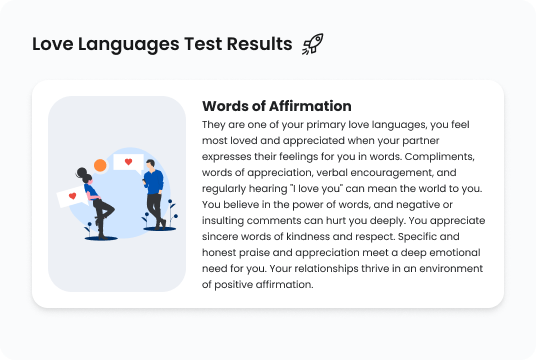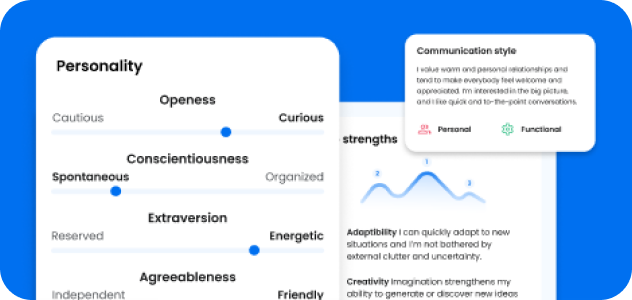Love Language Test

5 love languages test
Benefits
The Love Languages test is a valuable tool for understanding your own emotional needs and those of your partner. By identifying your primary love language, you can better communicate your needs to your partner and understand their needs in return. This can lead to improved communication, deeper emotional connection, and a more fulfilling relationship.
Operation true love
How you can use this test?
How it works?
you’re at ease, undisturbed
and ready to focus.
you through the process. It’s
easy - just go with your gut
feeling.
you will receive your
feedback immediately
anyone, with just a click of a
button
What's Inside? Get immediate feedback by measuring these traits in you
Love Language Test
Assessment Insights
Scientific and Empirical Foundations
The origin of the love languages concept: Chapman, G. (1992). The Five Love Languages: How to Express Heartfelt Commitment to Your Mate. Chicago, IL: Northfield Publishing. Love languages and relationship satisfaction: Egbert, N., & Polk, D. M. (2006). Speaking the language of relational maintenance: A validity test of Chapman's five love languages. Communication Research Reports, 23(1), 19-26. Personal growth and love languages: Demir, M. (2008). Sweetheart, you really make me happy: Romantic relationship quality and personality as predictors of happiness among emerging adults. Journal of Happiness Studies, 9(2), 257-277. Love languages and communication: Hertlein, K. M., & Blumer, M. L. C. (2014). The couple and family technology framework: Intimate relationships in a digital age. New York, NY: Routledge. Love language compatibility: Gungor, B., & Dodd, D. K. (2008). The five love languages: Exploratory factor analyses of Chapman's measures of love languages. Individual Differences Research, 6(4), 251-259.


